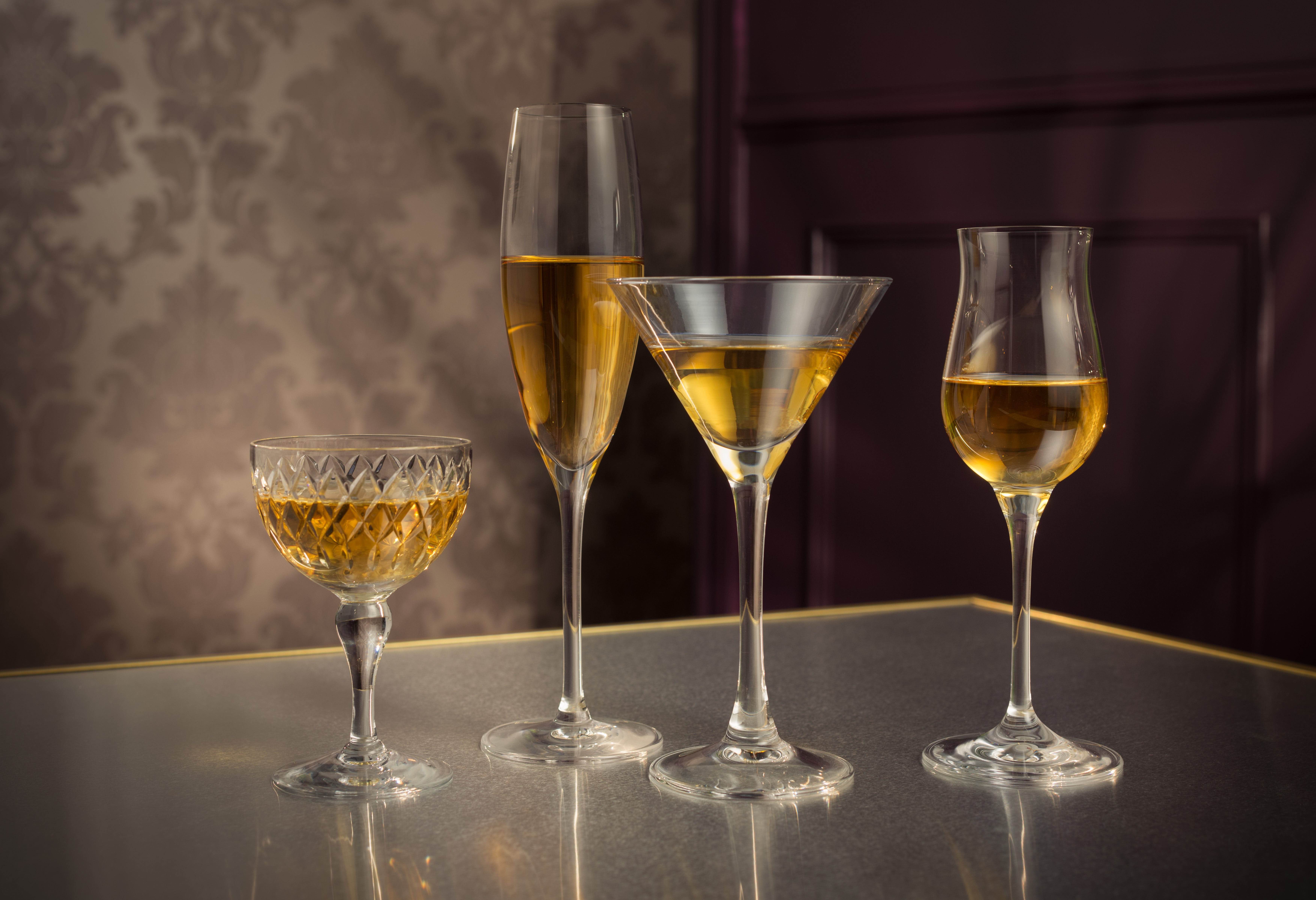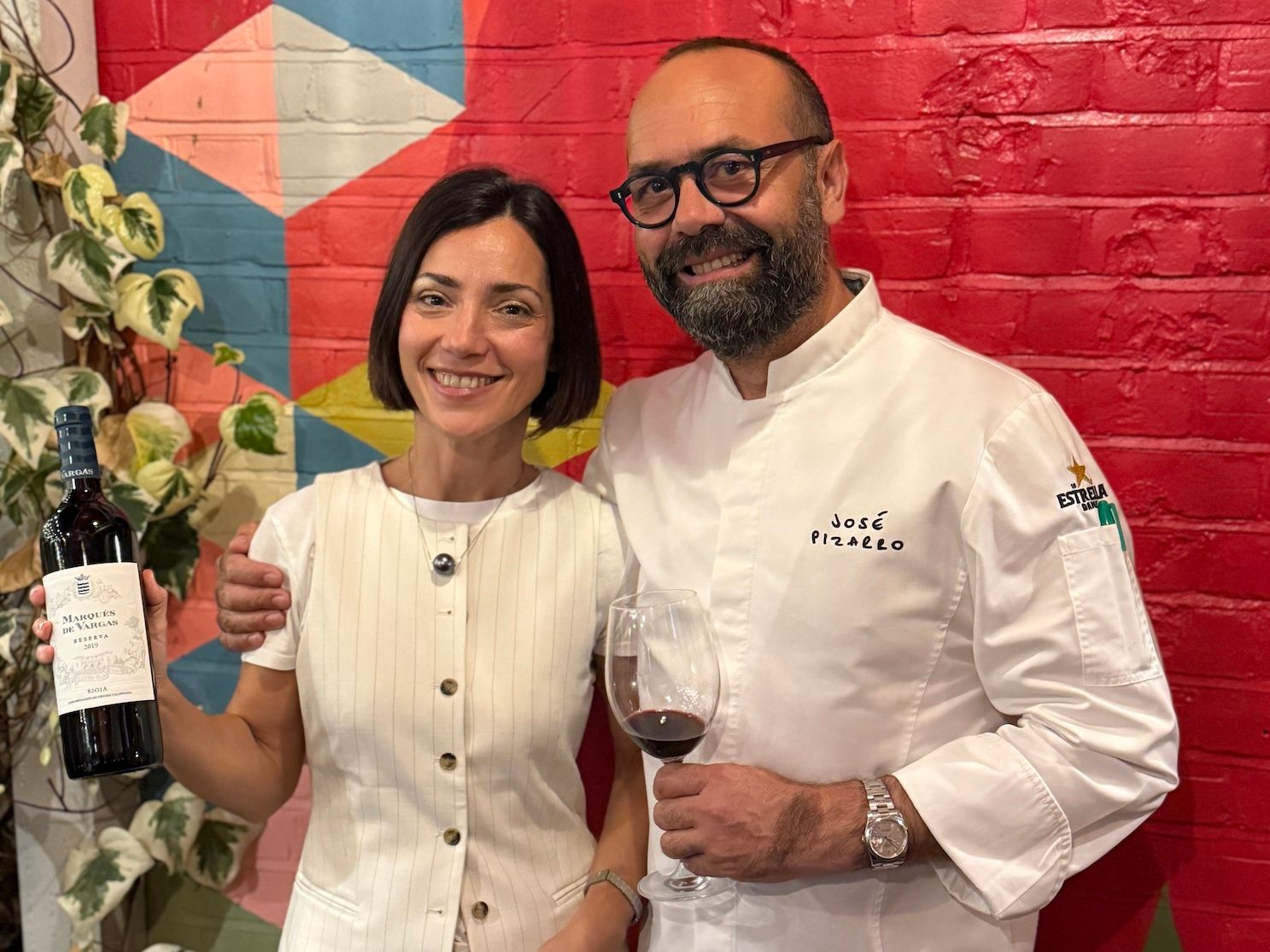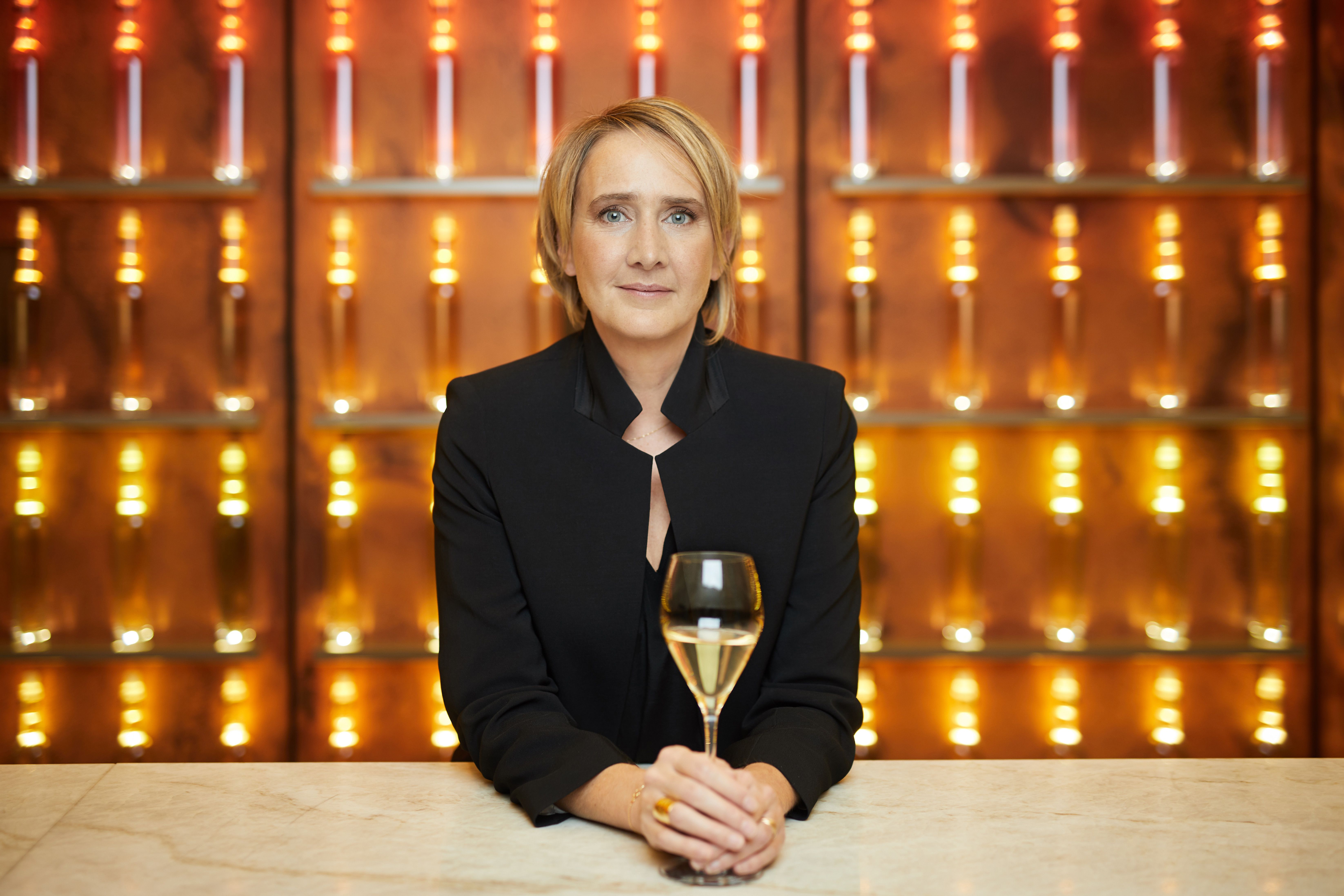Here’s a novel way to open up your back bar to the most sophisticated or jaded spirits drinker. Why not offer their favourite dram, or spirit paired with a refined glass of tea?
There’s nothing new about the concept of drinking tea and whisky together. In fact it’s said that Queen Victoria often enjoyed a wee dram with her tea at Balmoral. And in the Far East, spirits have been teamed with tea for years.
But here in the UK it’s not a trend that has ever really taken off – though that could all be about to change, thanks to the launch of a new range of non-alcoholic tea, Rare Tea Drinks launched by London-based Benjamin & Blum.
Managing director Paul Benjamin, a former international lawyer-turned-drinks entrepreneur, launched the range of exquisitely bottled, premium rare brewed teas last year.
They are designed to be drunk with spirits, whisky in particular, or enjoyed neat on their own as a sophisticated non-alcoholic drink.
“This is an entirely new product and concept, and while there are other brands in that premium alcohol-free space, they take a different approach,” he says.

Paul Benjamin believes premium tea can have a place on the back bar
The story of Benjamin & Blum is as intriguing as its products. Set up in London, its sole outlet was originally Hong Kong. Benjamin founded the company in 2012, partly in tribute to his two Edwardian great grandfathers who were in the fine food business; Marcus Benjamin, a fine food and drink purveyor from Berlin, and Friedrich Blum who supplied coffee, tea and other luxury goods Viennese high society.
“The opportunity to revive my family’s businesses from continental Europe and indulge my long-standing passion for drinks was too good to pass up,” says Benjamin.
“At the same time I saw that demand was rising for alcohol-free drinks with complexity and elegance. Something you would want to drink in a bar or restaurant if you were not drinking alcohol, with the versatility to be enjoyed with spirits – a luxury drink for everyone”.
Hong Kong inspiration
Inspiration for the idea of producing a distilled tea came from Hong Kong where Benjamin was working. Not only is tea an enormously popular drink in China as a hot brew, but drinkers have used it as a mixer with spirits for many years.
But despite centuries of interest in both fine whiskies and teas, the idea of combining the two has never really taken off in the UK. But Benjamin hopes that is all about to change, after the initial seed of an idea took root and prompted him to look into the possibility of producing his own premium tea drink.
It took two years to develop and finesse the recipes and bring the products to market. Initially Benjamin worked on the concept on his own and then drafted in some tea experts to advise him on the more technical aspects of the production process.
The products were initially launched in Hong Kong in 2015 and made their UK debut in Selfridges in London last October, priced at £25.95 for a 200ml bottle.
Hong Kong proved to be a great launch pad, says Benjamin, as the Chinese are “fanatical” about tea. “It’s done very well there,” he claimed, where the drink has been selling in upmarket department store Lane Crawford and in high-end whisky shops such as Liquid Gold as well as the five star Shangri La Hotel.
Refined styles
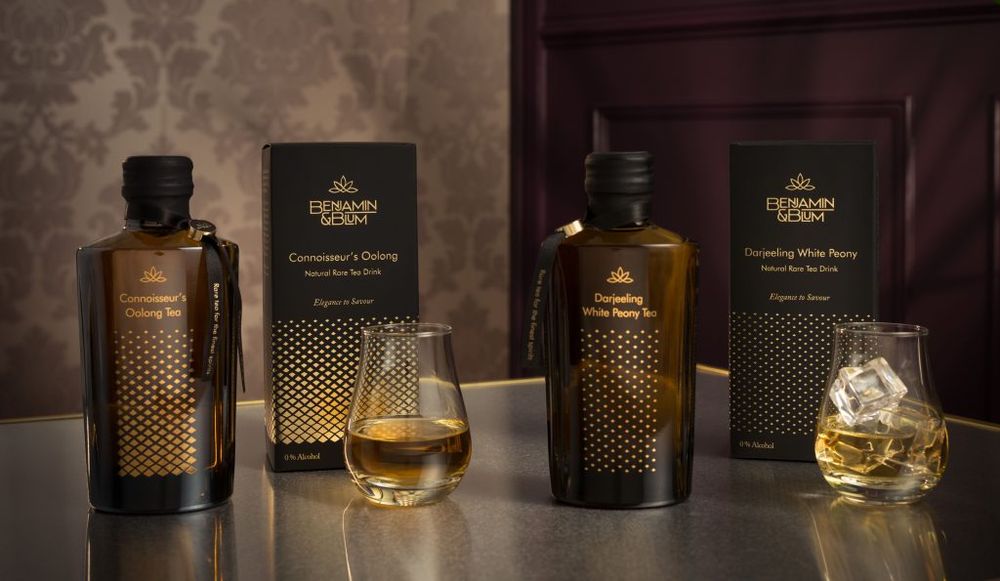
The Benjamin & Blum range are designed to appeal to the luxury end of the market
The drinks are made from two very distinct types of tea that are not often encountered in Europe; white peony style tea which has become very popular in China, and white tea from Darjeeling, which is only grown in tiny quantities at high altitudes, and has to be hand picked to retain its delicate flavour.
“It has a very distinctive flavour, like a fine wine, and only produces once a year,” explains Benjamin. “White tea is very delicate and it’s a challenge to produce it. It has a lovely fragrance and is grown at high altitude.”
Two flavours were eventually developed; Darjeeling White Peony, grown in Darjeeling and handpicked once a year; and Connoisseur’s Oolong which is grown in new Zealand.
Craft brewed
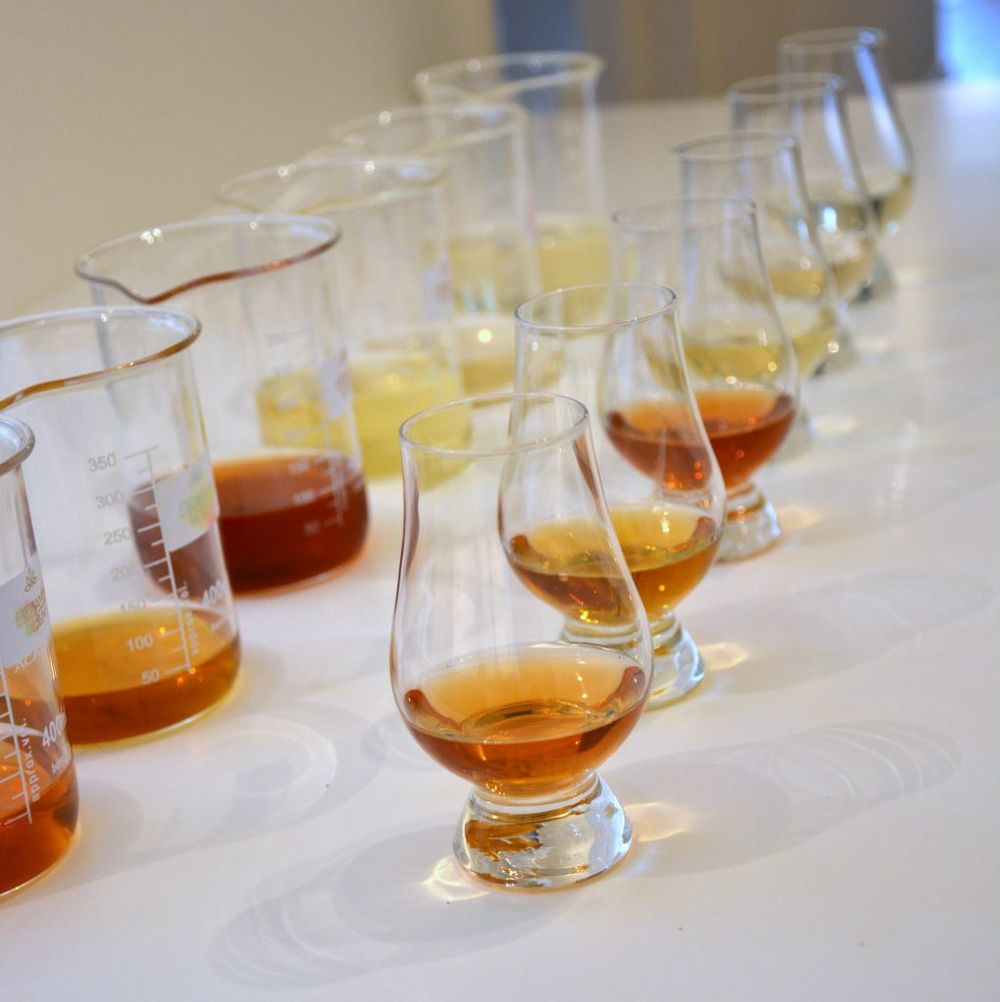
The tea is made in small batches to ensure consistency and quality
Each drink is cold brewed in small 100 litre batches and includes just four ingredients; tea, Scottish spring water, orange and starflower honey produced in the Cotswolds.
Production of the tea drinks is limited by two factors, says Benjamin. Firstly, the capacity of the production operation itself, but also the size of the annual tea harvest.
Benjamin claims his tea has many similarities with wine and its terroir. ”There are similar depths and complexity of flavours, depending on when the tea is picked, and how it’s processed, and aged.”
Perfect spirits pairings
Darjeeling White Peony is recommended for pairing with sherries or fruity whiskies, such as Glenfiddich 18-year-old, while Connoisseur’s Oolong is recommended for teaming with smokey, peated whiskies, such as Lagavulin 16-year-old or Caol Ila 25-year-old.
It also makes an excellent pairing with gin, according to Benjamin. “It’s a really lovely flavour combination,” he says, “and the Oolong draws out some of the juniper and the more herbaceous botanicals, while we have done a lot of pairing of the white peony tea with dry Cognac.”
“I want to revolutionise the way we approach drinks. For those who are not drinking, where are the non-alcoholic drinks with the same level of sophistication as whisky?
“Our teas offer something different, something new for consumers who do not wish to drink alcohol. But at the same time, they offer a new mixing experience for whisky drinkers to enjoy.”
Premium pricing
But given that you can buy a standard spirits mixer for a pound or two, who in their right mind would fork out £25 plusfor what is, after all, simply a tea drink?
Benjamin claims that the price hasn’t proved a barrier, though concedes that his teas are aimed at a very exclusive niche market, such as five star London hotel bars, restaurants and private clubs. In fact for some high net worth individuals, the price may prove to be “reassuringly expensive” to steal a line from another drinks brand.
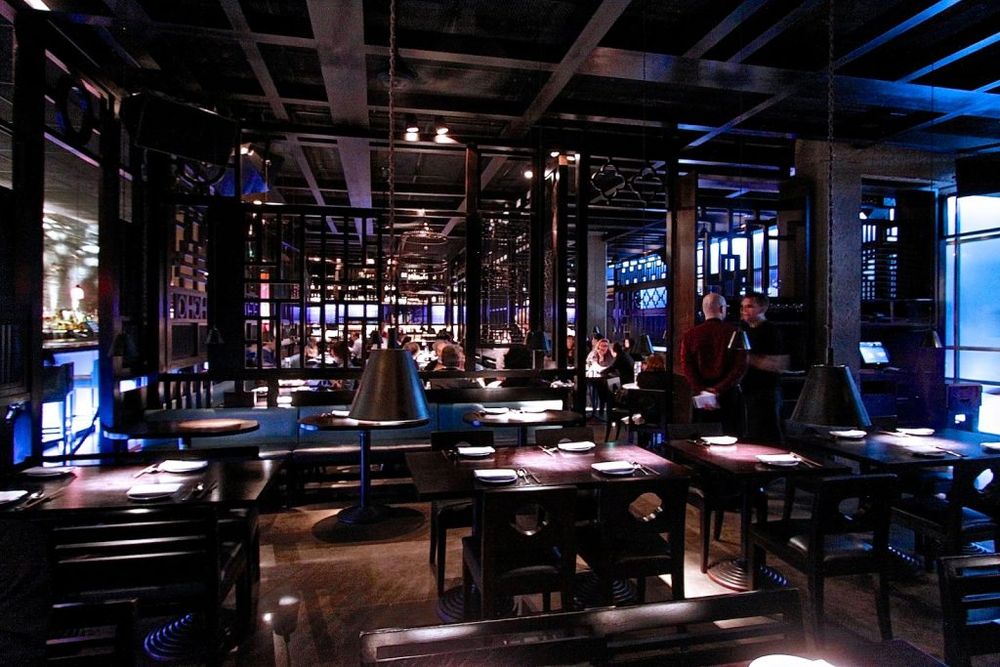
Hakkasan is one of the first high end restaurant to stock the Benjamin & Blum range
The teas are currently available for sale in Selfridges, and have been on Hakkasan’s menu since January.
And Benjamin thinks that the booming fine dining scene offers great opportunities for Rare Tea Drink. “Hakkasan Group has done a lot of pairing the teas with both spirits and foods, and the feedback has been very good,” he says.“I think the teas complement Asian food particularly well.”
Other than having deep pockets, Benjamin says he thinks the teas will be enjoyed by those who enjoy all sorts of spirits and want to appreciate them in different ways. “This offers a whole new realm of flavours and aromas with tea, and a lovely way to explore these spirits.”
“There is a really enormous market for premium alcohol free drinks, we have seen this with Seedlip which produced something interesting and different.We are very much in a similar category.”
New styles to come
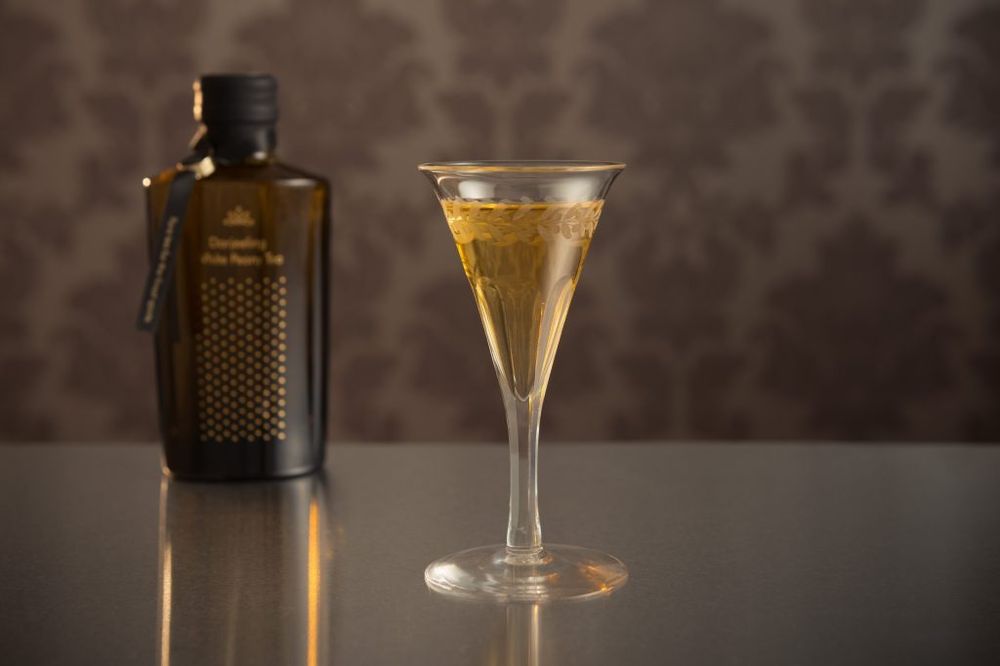
Benjamin is already looking to the future and experimenting with new varieties and flavour combinations and planning a new product launch for the autumn. “We are looking at some very high end green teas, and there’s some super stuff coming out of Japan and China.”
Aged teas also present significant opportunities, according to Benjamin. “In the spirits world ageing is everything, but in tea you can do the same. In China, for example for a long time they pressed tea into cakes and aged it for decades. Pressed together, it gives it an earthy taste.”
And it would be remiss not to mention the gorgeous packaging the teas are presented in, which has been changed for the UK market. The weighty glass bottles with gold etchings are more akin to something you would find in a bespoke Parisian perfumier than a mere mixer, (we’re not talking Schweppes here), and underlines the premium nature of the brand.
Benjamin advises serving the Darjeeling White Peony, which is the most popular of the two teas,neat lightly chilled, or over ice, and with a slice of orange to create a refreshing long drink. As a mixer, he says it is perfect with brandy, rum or whisky, and should be served in equal measure with the spirit.
Connoisseur’s Oolong, which Benjamin says offers more versatility than the Darjeeling, is the perfect partner for Rye, Scotch or Bourbon, and again should be served with an equal measure of spirit, with ice if desired. Alternatively the Connoisseur’s Oolong is excellent served with an aromatic gin.
